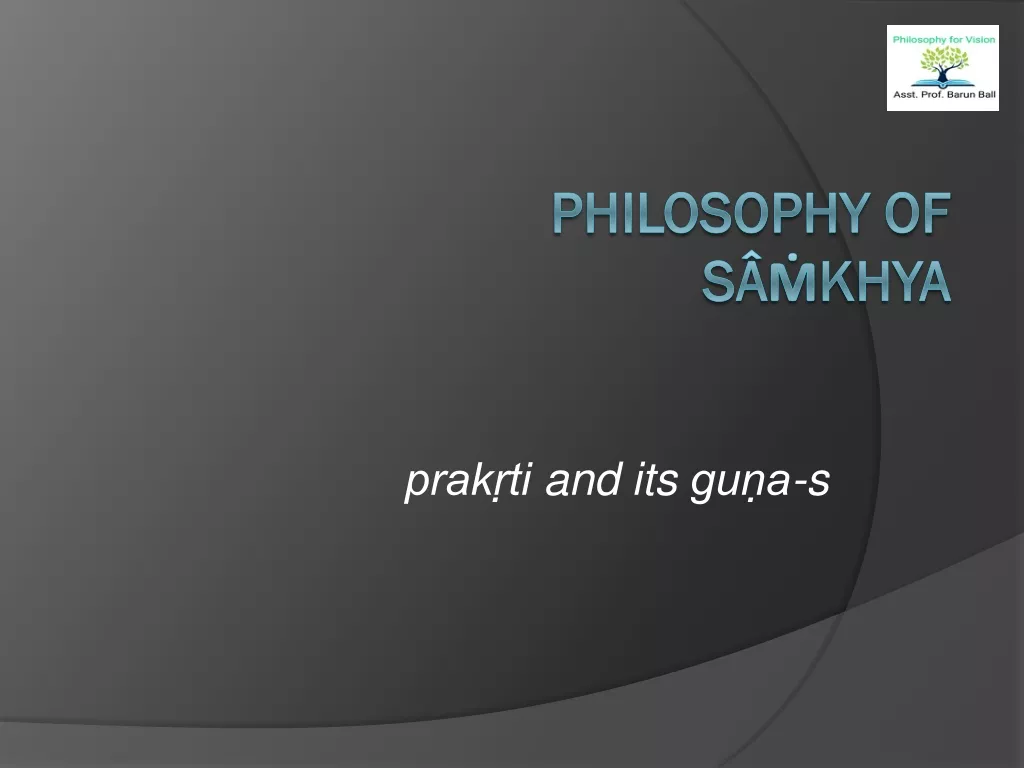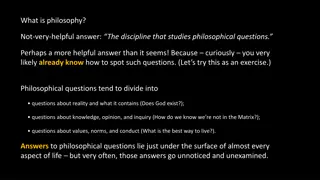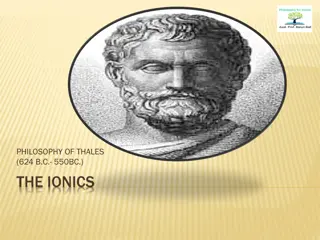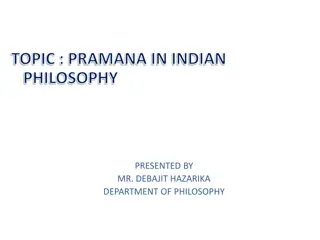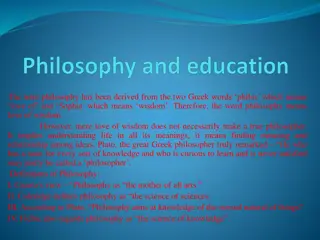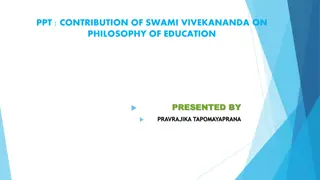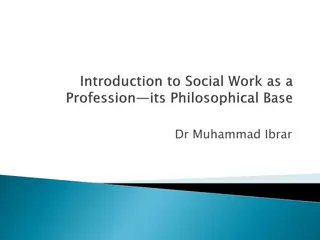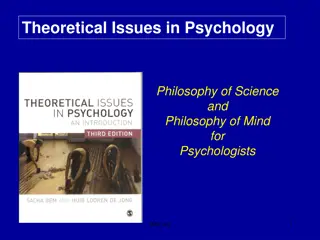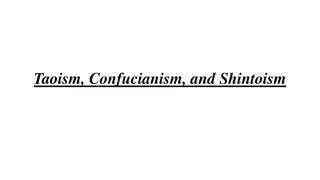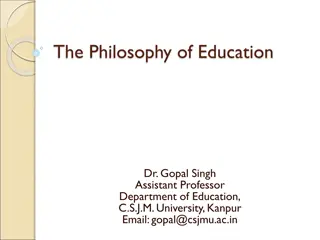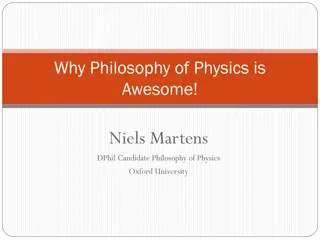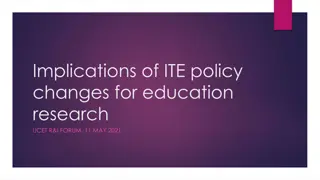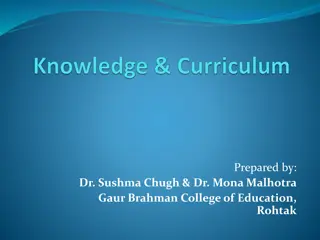Implications of Philosophy on Education
Philosophy plays a crucial role in shaping various aspects of education including aims, curriculum, textbooks, discipline, teaching methods, and teachers. It influences the goals of education, guides curriculum development, aids in textbook selection, determines disciplinary approaches, impacts teaching methodologies, and influences the philosophies of educators.
Download Presentation

Please find below an Image/Link to download the presentation.
The content on the website is provided AS IS for your information and personal use only. It may not be sold, licensed, or shared on other websites without obtaining consent from the author.If you encounter any issues during the download, it is possible that the publisher has removed the file from their server.
You are allowed to download the files provided on this website for personal or commercial use, subject to the condition that they are used lawfully. All files are the property of their respective owners.
The content on the website is provided AS IS for your information and personal use only. It may not be sold, licensed, or shared on other websites without obtaining consent from the author.
E N D
Presentation Transcript
Educational Implication of Philosophy Philosophy has tried to exert its influence on almost all the broad aspects of education as given below 1. Philosophy andAims of Education: Rusk says, Every system of education must have an aim and the aim of education is relative to the aim of life. Philosophy formulates what should be the end of life while education offers suggestions how this end is to be achieved . This means that the aims of education are related to the aim of life which is determined by philosophy. Philosophers set their aims of life as per the changes of time. That is why aims of education keep on changing from time to time.
2. Philosophy and curriculum: Curriculum is the means through which the aims of education can be realized. We first determine the aims of education and then frame the curriculum based on these aims. These aims of education are determined by philosophy and thus, we can say that though indirectly but philosophy has its influence in framing the curriculum.
3. Philosophy and textbook: Textbook are the instrument through which the aims of education can be determined. Philosophy exerts its influence in this aspect by helping the reader select the correct text book by setting a standard of judgment.
4. Philosophy and Discipline: Discipline of the school is also determined by the philosophy of life. There may be three types of disciplines in schools (a)Repressionistic Discipline. (b)Impressionistic Discipline (c)Emancipatory Discipline Which types of the above disciplines should be follow by a school depends upon the philosophical foundations of the society, which the school represents. Actually a combination of all these disciplines may be suitable to any school as compared to a single philosophy of discipline.
5. Philosophy and Methods of teaching: Philosophy is way of thinking and way of working both. So when philosophy changes, method of teaching also changes. The process of carrying the related knowledge and experiences to the reach of students is called method of teaching. Different philosophers have propounded different methods of teaching in accordance with the aim. Some examples are given below I. Idealistic like Socrates, Plato, and others advocated conversation and Lectures as methods of teaching. II. Naturalists like Rousseau and other maintained that child should be given maximum freedom in the class. So, they advocated Dalton plan learning by doing, Montessori Method and so on as method of teaching. III. Bacon opined that observation and experimentation would be the best method of teaching.
. Philosophy and Teacher: Like every individual, a teacher also has his own philosophy of life. Whatever he believes is reflected in his action. He tries to influence the students by his own ideology. The naturalist feels that the teacher should not interfere in the activities of the child whereas; the idealists feel that the teacher is the supreme in the process of education. The pragmatist adopts via media as far as the place of teacher is concerned. He is simply to guide the child in various learning activities. We can conclude by saying that philosophy is the basis of education. Philosophy is indispensable for every aspect of education. In the absence of philosophical foundations education becomes irrelevant, meaningless lifeless and colourless.
Thanking You Presented by- Dr M. U. Akanda Dept of Education. Salbari College, Salbari.





